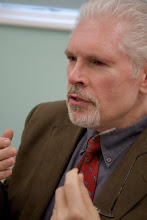I didn’t know anything about Fela except that it was based on afro-beat, it received rave reviews, and the tickets were only ten pounds. I walked into the national theater for a second time during my stay in London, but it looked unrecognizable from the first. The room was laden with colorful posters and images of articles with headlines from 1970s Nigeria. Syncopated jazz beats, thumps from the conga drums, the strumming of blues guitar, and the piercing melody of a saxophone resonating throughout the auditorium. Reds, greens, oranges, purples, and yellows reflected off the stage and into the crowd. If it wasn’t for my firm grasp on reality and sober state of mind I would think that I was in a place called “The Shrine” in Nigeria.
The performers took the stage dancing in what could be described as reckless abandon, giving themselves to the music. Unlike in most of the productions I have seen where dancers line up in a chorus like and perform all there moves in sync, these dancers were expressing themselves individually through the music. Then the actor playing Fela walked on stage eliciting a shout of “yeah yeah” from the audience. I felt as if I was attending a concert instead of a musical. There were many instances of audience interaction including a dance lesson and combined with spatters of spontaneous banter with the audience. The dancers utilized the entire expanse of the auditorium, running along the corridors and climbing the walls. Fela did an excellent job of incorporating the audience in their production making for an indescribable experience.
I particularly enjoyed how he peeled off layers of music from the immense wall of sound that playing in the background to show the development of afro-beat music. With every anecdote he taught me more about Nigeria and the corruption of his government. In the second act adopted a new tone, one is which Fela experiences loss and discovery. The dancers adopt a more uniform style and Fela is removed from the focus of the show replaced by his now dead mother who gives him advice from the afterlife. Her haunting performance influences Fela to stay in Nigeria and fight the unrighteous government through his music, leading to the finale where the dancers walk on stage bearing coffins. This bold and poignant statement expanded my thoughts beyond the realm of music and into more important issues concerning humanity.
Fela is about experience. It allows audiences to delve into the psyche of a revolutionary in music and politics. I would encourage anyone interested in either to see it.
Amalia Albaryan

No comments:
Post a Comment